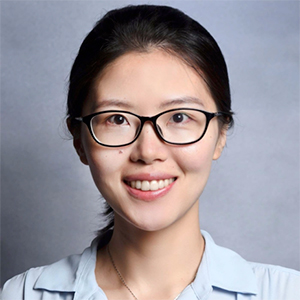Legged robots have the potential to assist humans with a wide range of real-world tasks in dynamic, unstructured environments, such as search and rescue on disaster sites, monitoring of natural resources, space exploration, home assistance, and delivery and courier services.

While legged locomotion on stationary surfaces has been extensively studied, legged locomotion in non-inertial environments, which are environments that globally move in the inertial frame (e.g., ships, aircraft, and trains), remains a new robot functionality that has not been solved. This new functionality will empower legged robots to perform critical, high-risk tasks such as shipboard firefighting and fire suppression as well as disinfection on moving public transportation vehicles to help contain the spread of infectious diseases. Yet, enabling reliable locomotion in non-inertial environments presents substantial fundamental challenges in legged robot control due to the high complexity of the hybrid, time-varying physical interaction between the robot and the environment.
In this talk, Dr. Gu will present the current progress from her research group in creating new approaches of dynamic modeling, state estimation, and control of legged robots that achieve provably stable locomotion in non-inertial environments by explicitly addressing the associated hybrid, time-varying robot dynamics. She will also report recent evaluation results of several commercial legged platforms (e.g., Boston Dynamics’ Spot and Agility Robotics’ Digit) from both in-lab experiments and field tests onboard a moving naval ship.
Dr. Yan Gu received her bachelor’s degree in mechanical engineering from Zhejiang University (China) in 2011 and her Ph.D. in mechanical engineering from Purdue University in 2017. She was an assistant professor in the Department of Mechanical Engineering at the University of Massachusetts Lowell (UML) between 2017 and 2022. She has been with the faculty of the School of Mechanical Engineering at Purdue University since fall 2022.
Her research focuses on nonlinear control and hybrid systems with applications to legged locomotion, including bipedal humanoid and quadrupedal robot locomotion and exoskeleton-assisted human walking. Her long-term research goal is to realize provably safe and autonomous legged locomotion in highly dynamic, unstructured environments. Towards reaching this goal, her research draws upon nonlinear control theory, theory of hybrid systems, dynamics, and optimization to create new methodologies of modeling, state estimation, and control of legged locomotion.
She received the ONR Young Investigator Program Award in 2023, the NSF CAREER Award in 2021 and the Verizon’s 5G Robotics Challenge Award in 2019. Her research on legged locomotion has been funded by NSF, ONR, ARL, and Verizon’s 5G Lab and reported by various media such as Boston Globe, CNET, Robotics Business Review, and NPR’s WBUR.